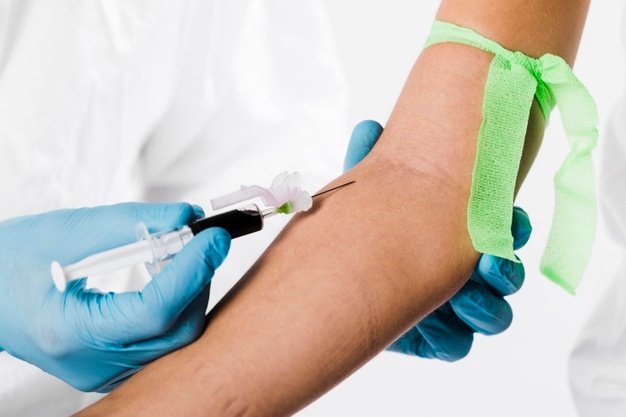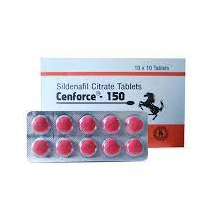Everything You Need to Know About Herpes Blood Testing

If you think you were exposed to the herpes virus, you don’t need to panic. Herpes simplex virus (HSV) is more common than most persons think, and most infections are manageable. You can always get tested for herpes if you feel you’ve been infected.
What is herpes?
Herpes is a common and highly contagious viral infection, with HSV-1 affecting about 67% of people below 50 and HSV-2 affecting 11% of people between 15 and 49 years.
Most people infected with herpes remain unaware of the infection, while some people with genital or oral herpes experience occasional outbreaks and others remain asymptomatic. Being asymptomatic means, you are carrying the virus without noticeable symptoms.
This means you can contract the herpes virus from someone who has symptoms and does not experience any, and you can also contract the virus from someone experiencing symptoms.
Different tests are available to check whether you have herpes or not. The most common herpes tests are PCR blood tests, viral culture tests, and herpes antibody blood tests. Your healthcare provider can recommend the right herpes test for you, depending on your symptoms.
Each herpes test has its pros and cons. Below is how the tests work, specific information about which is best to know if you have herpes or not.
When do you need herpes testing?
The right time for herpes testing depends on the situation. Suppose you are experiencing symptoms of an initial herpes outbreak such as redness, pain and itching of the affected area, chills, fever and fatigue, painful ulcers or sores. In that case, you need to visit your healthcare provider to get tested.
However, if you think you have been infected with the virus but have no visible symptoms, you may not have to get tested immediately because HSV may take a while before it can show on the test. Although the exact time before HSV shows on a test result is uncertain and varies between persons, you can get tested after two weeks to get an accurate test result.
Most people feel concerned about having herpes after they’ve had contact with someone they think is infected. Kissing someone with facial acne or a visible cold sore on the lips may cause panic about being infected with HSV-1.
Concerns about being infected with genital herpes occur after a potential exposure to an infected person through sexual contact. This may include oral sex with someone who has cold sores that can spread to the genital area.
Most people infected with herpes are asymptomatic, which means you could get infected and not show symptoms.
Viral culture testing
A viral culture test is a common herpes test. This test involves a healthcare provider extracting a small number of skin cells from a part of your body that may be infected, such as your mouth, lips, the area around your anus or genitals.
The healthcare professional will take only a tiny cellular sample for the test, usually be collecting fluid from the skin lesion using a cotton swab. This process is simple, fast and causes only minor discomfort in some people.
After extracting the cellular sample, the healthcare provider will send it to the lab for analysis. The lab scientist will culture the sample to monitor the viral growth over a couple of days under a microscope.
A viral culture test takes about 2 – 5 days before the result is available. The test result will depend on the activity of the sample. If the scientist observes growth in the culture, the result will be positive, but if there is no viral growth, the result is negative.
Viral culture tests are reliable for detecting herpes infection, but they have a downside. Since the test requires the virus in an active infection, it is unreliable for detecting asymptomatic infections. They are suitable for confirming herpes infection if you experience genital or oral herpes symptoms, but not when the infection is asymptomatic.
Antibody herpes testing
Antibody herpes testing is suitable to check for asymptomatic herpes. The antibody herpes test, also called the serum antibody test, is the most accurate for asymptomatic herpes and can detect HSV-1 and HSV-2.
Following infection with HSV, the body begins to fight the virus by producing antibodies that act as the body’s ammunition against bacteria and viruses, like HSV-1 and HSV-2.
Herpes infection causes the body to produce two types of antibodies, and they include IgM and IgG. This private blood test in London can detect these antibodies. However, some limitations affect the efficacy and accuracy of antibody herpes testing.
-
IgM antibodies
These antibodies are detectable within the first 7 – 10 days after an HSV-1 or HSV-2 infection. This period usually occurs alongside the initial viral outbreak when the symptoms are obvious and intense.
The antibody test can detect IgM antibodies even in asymptomatic cases, which means you mustn’t experience symptoms before taking the test. If you think you have had recent exposure to herpes or think you are experiencing symptoms of an initial outbreak, consult your healthcare provider about getting an IgM test.
-
IgG antibodies
This is the second type of antibody test used for detecting herpes. IgG antibodies usually take a longer time to form in the blood following a herpes infection. The body gradually produces these antibodies after herpes infection occurs. This means that getting an accurate IgG antibodies test will take longer than an IgM antibodies test.
The IgG test can differentiate between the common types of herpes, making IgG antibody testing suitable for detecting asymptomatic, latent herpes infections. Although IgG antibody testing can provide information on whether HSV-1 or HSV-2 causes infection, it cannot differentiate between genital and oral herpes.
Herpes blood test is accurate to a large extent and can be reliable for checking if you have the herpes virus. On the flip side, the antibody test can give false results in some cases. False positives and negatives occur often, and some healthcare providers do not communicate this clearly to patients.
For this reason, you may need to schedule several herpes tests over a certain period to know if you have herpes.
PCR herpes testing
Polymerase chain reaction (PCR) test involves identifying specific genetic material (DNA) found in HSV. This test also differentiates between HSV-1 and HSV-2 infections. If you want to carry out a PCR test, your healthcare provider will collect a sample from a genital sore or your lips with a swab.
The healthcare provider will carry out testing on the sample for DNA similar to HSV-1 and HSV-2. Unlike antibody and viral culture testing, which takes several days, the PCR test takes a short time and is efficient.
You can also get a PCR test later in an outbreak than the viral culture test, which may give a false negative when the herpes virus becomes inactive on sample cells.
PCR test requires a sample of an infected area, making it suitable for testing symptomatic herpes infections that cause cold sores or genital lesions. You can also carry out PCR testing for herpes with spinal fluid, blood and other cell samples.
PCR testing is perfect for people who have had herpes outbreaks but no longer have visible symptoms at the time of testing. Carrying out PCR testing with spinal fluid or blood can identify the genetic material of HSV-1 and HSV-2 when physical symptoms are absent.
Which herpes test should you carry out?
Each herpes testing method has its up and downsides, ranging from cost to turnaround time and the possibility of having false results. In most cases, people infected with herpes use different herpes tests to have a more accurate result. ‘
Herpes has no cure, and an infection lasts a lifetime which makes discussing your testing options with your healthcare provider necessary. Your healthcare provider can inform you more about the suitable herpes testing option for you, depending on your situation and symptoms.
Your healthcare professional will likely carry out a physical exam to help determine the best testing option. Herpes symptoms are usually worse during the initial outbreak, so ensure you talk to your healthcare provider when you experience the symptoms.
Even if your herpes test result is positive, you don’t need to panic as genital and oral herpes are quite common. These infections have different effective treatments.
The first step is determining whether you have herpes or not. To know if you have herpes visit our website to schedule an appointment to consult a doctor for herpes testing.




